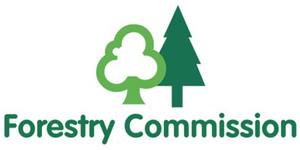Ips typographus Support Officer
The Forestry Commission
Job summary
The Plant Health Forestry (PHF) team is a high-performing, geographically distributed team working across Great Britain (GB) to support healthy trees, woods and forests now and for the future. Together we deliver essential work to prevent the entry of harmful tree pests and diseases, enable early detection, minimise their impact, and ensure the traceability of forest reproductive material.
PHF collaborates with a broad network of partners, including other Forestry Commission teams, Forest Research, the Devolved Administrations of Wales and Scotland, government agencies, and sector stakeholders such as trade bodies, importers, processors, forest management companies, and landowners.
By joining PHF, you will become part of a passionate, expert team driving ambitious work to protect and improve GB’s valuable woodland assets.
Location
Any FC office within the Ips typographus Demarcated Area or within a reasonable commuting distance from the Ips typographus Demarcated Area boundary (subject to availability in relation to working pattern/blended working arrangements), with some travel nationwide.
For a map of the Ips typographus Demarcated Area see:
https://assets.publishing.serv...
Please be aware that this role can only be worked in the UK and not overseas.
Job description
Ips typographus is regulated in the UK as a Quarantine Pest and we are obligated to act against the current findings to support maintaining this status.
The beetle poses no threat to human health but can be a serious and destructive pest of spruce tree species and poses a serious threat to the GB forestry sector. Spruce trees are a major component of our forestry industry, making up around 50% of commercial planting in the UK and supporting thousands of jobs.
The aims of the Ips typographus management programme are:
- Deliver strategic plans: Develop and implement England-wide strategies to prevent, detect, control and ultimately eradicate Ips typographus incursions, interceptions and outbreaks.
- Outbreak response: Rapidly identify and respond to outbreaks of the pest, coordinating multi-agency resources to contain spread, minimise impact and achieve swift eradication.
- Surveillance: Maintain a systematic, risk-based surveillance programme for vulnerable spruce stands. Collaborate with Forest Research on the management of pheromone trapping detection networks. Coordinate and execute targeted ground-inspection responses to various intelligence streams.
- Authorisations: Oversee the timely response to spruce felling, movement and processing inspection requests, ensuring compliance with biosecurity requirements and issuance of authority letters. Maintain detailed records of all authorisations ensuring compliance with auditing requirements.
- Contractor management: Coordinate procurement, assignment and performance monitoring of contractors tasked with surveillance, felling, sanitation and other control measures, ensuring efficient use of resources.
- Support policy objective of reducing host presence in high-risk areas: Align operational activities with policy goals by encouraging proactive removal of spruce material in zones most vulnerable to Ips typographus
- Data collection and reporting: Lead the gathering, validation, and analysis of surveillance, pest distribution, outbreak response status data, producing clear, timely reports to drive informed decision-making and optimise management tactics.
- Training, communications and guidance: Provide best-practice training programmes, clear sector guidance and ongoing stakeholder engagement, ensuring that forestry workers, landowners, partner agencies and the wider forestry sector are fully equipped to implement and support Ips typographus control measures.
- Project work: Collaborate with Forest Research and government partners to deliver R&D initiatives on Ips typographus control, spanning remote sensing applications, debarking-equipment efficacy trials, and canine detection methodologies.
Key Work Areas
Responsibilities
The purpose of the Ips typographus Support Officer is to:
- Support the Ips typographus Programme Manager and Project Officers to implement England-wide strategies to prevent, detect, control and eradicate Ips typographus incursions and outbreaks.
- Assist with regular field surveys of spruce stands to detect early signs of Ips typographus infestations, recording your field observations (sampling locations, forest health reports etc) and uploading them into our central database.
- Take part in rapid-response visits to confirmed outbreak sites, briefing landowners and contractors on basic legal requirements and response protocols under supervision. Assist with ongoing monitoring of outbreak sites ensuring compliance with statutory requirements.
- Assist Forest Research and Ips typographus Project Officers with the management of pheromone trapping detection networks and rapidly respond to trap catches with targeted ground-inspection.
- Conduct inspections and prepare paperwork for spruce felling and movement authorisation requests, maintaining audit-ready files that adhere to templates and ensure compliance with regulatory framework.
- Liaise with external contractors to schedule field visits, monitor quality, and report issues to Ips typographus Project Officers.
- Compile surveillance and outbreak data and assist in producing concise weekly summaries for the Ips typographus Programme Manager.
- Support the organisation and setup of stakeholder workshops and training events, distributing printed guidance materials to local landowners and forestry partners.
- Aid in delivering introductory training on Ips typographus and current best practices and help develop communication assets.
- Support FC and government partnerships on R&D initiatives including remote sensing, debarking-equipment trials and canine detection studies.
About Forestry Commission
The Forestry Commission increases the value of woodlands to society and the environment.
The Forestry Commission is the government department responsible for protecting, expanding and promoting the sustainable management of woodlands. We work with two agencies: Forestry England (who manage the Public Forest Estate) and Forest Research (Great Britain’s principal organisation for forestry and tree related research).
The Forestry Commission increases the value of woodlands to society and the environment. The Forestry Commission is the government department responsible for protecting, expanding and promoting the sustainable management of woodlands. We work with two agencies: Forestry England (who manage the Public Forest Estate) and Forest Research (Great Britain’s principal organisation for forestry and tree related research).
more